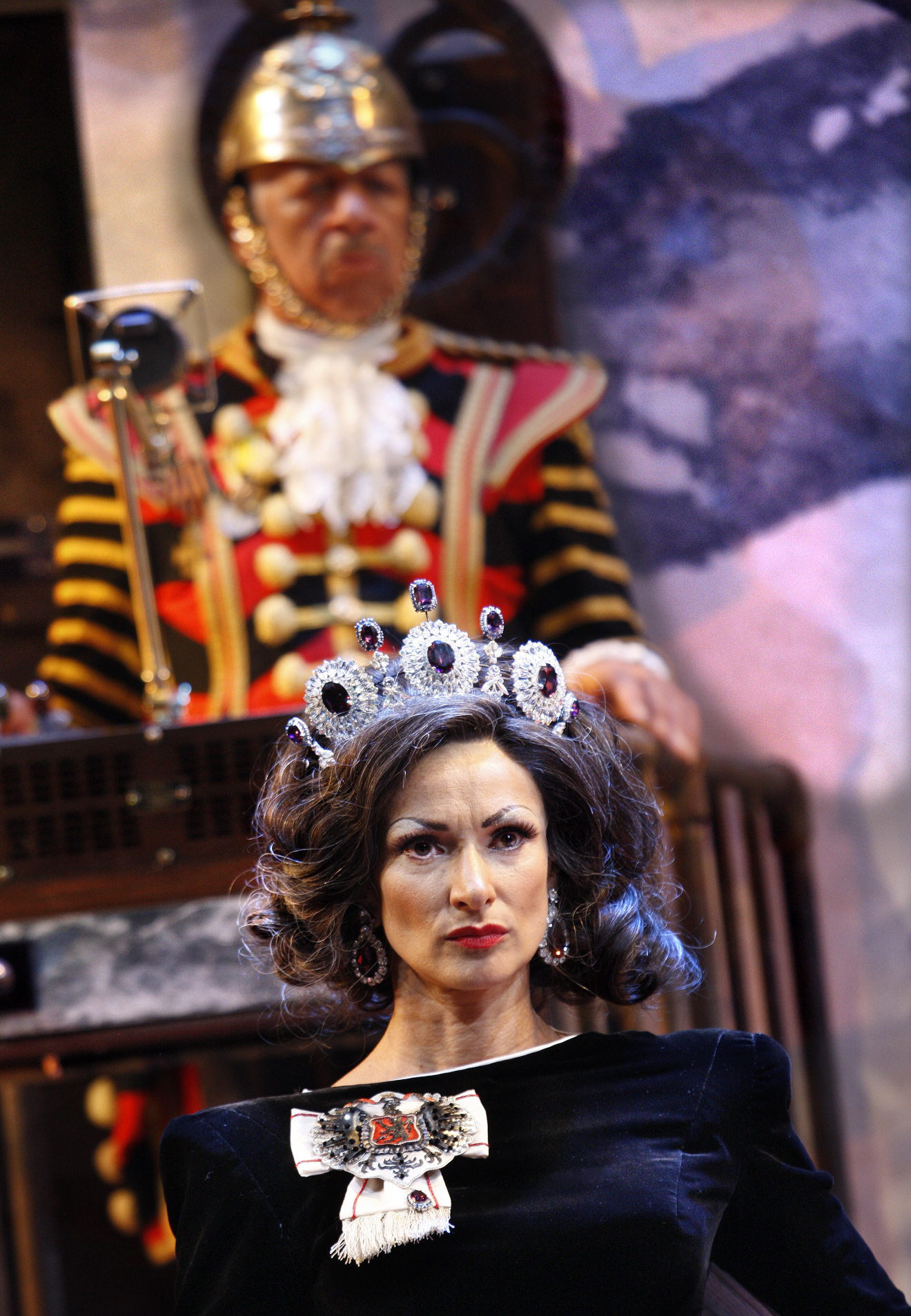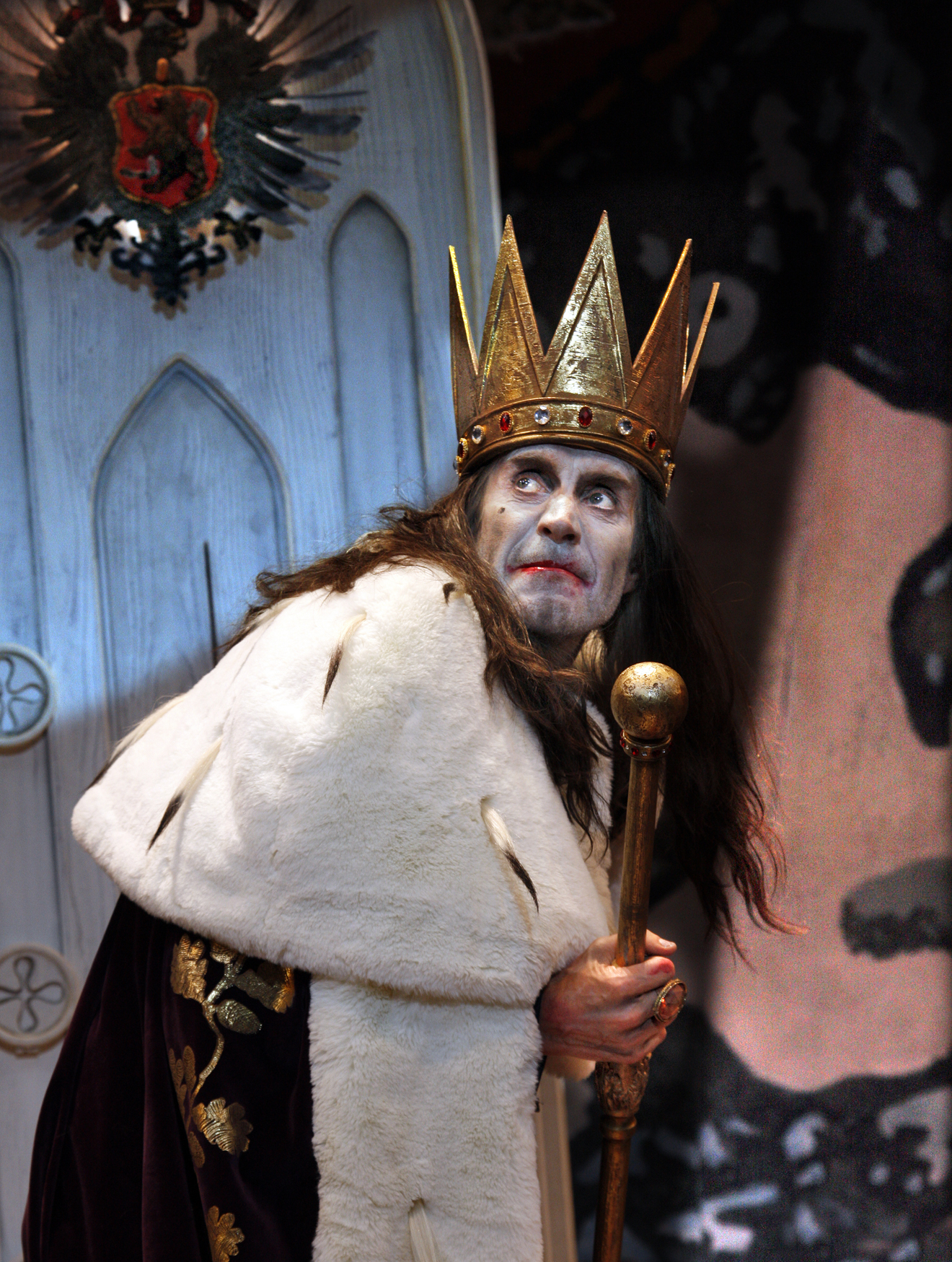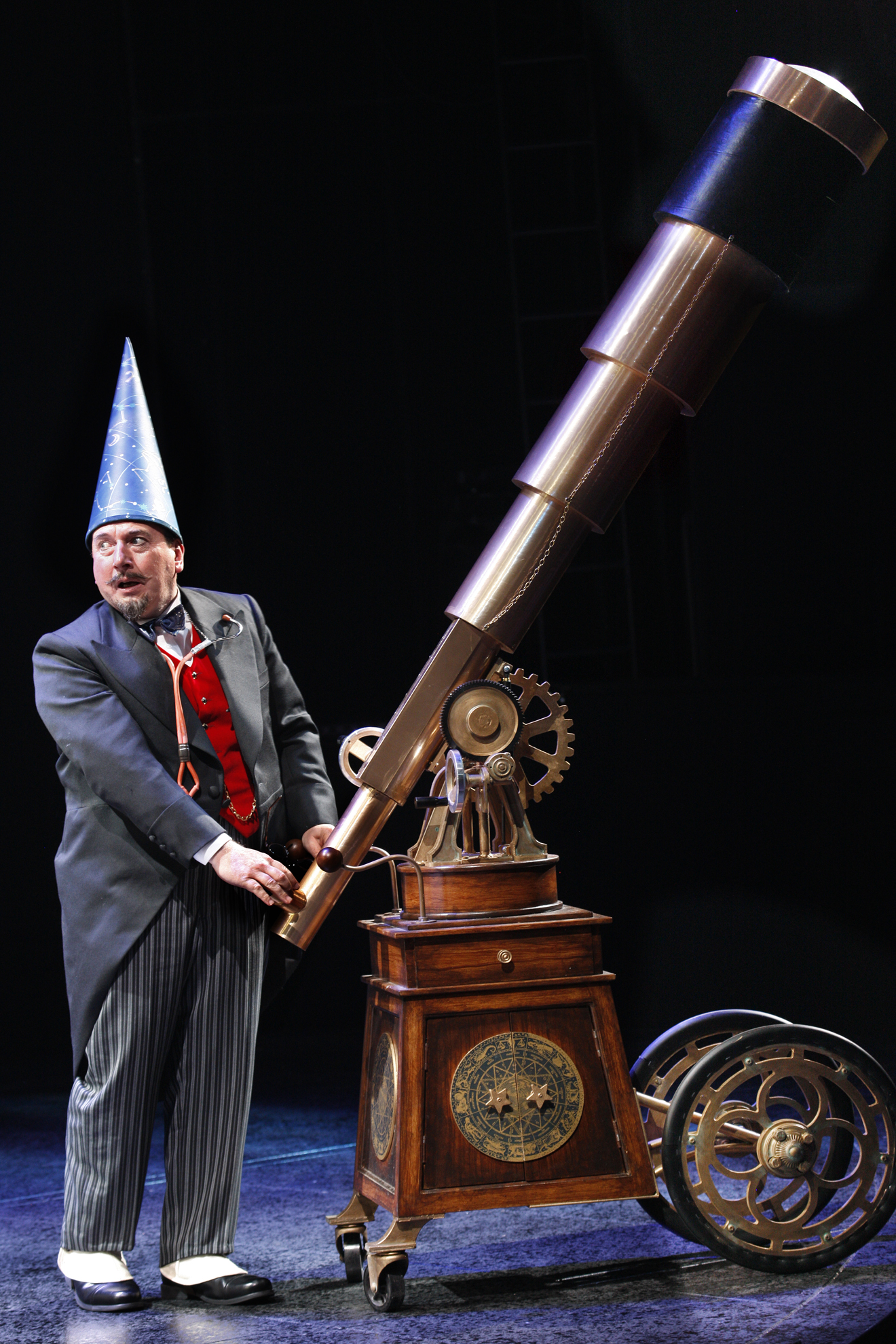Patrick Marber’s version of Ionesco’s surreal meditation on death is witty, imaginative and ultimately moving
“Everyone is the first person ever to die,” says King Berenger’s favourite Queen, Marie. Romanian-French Absurdist playwright Ionesco wrote this unsettling, provocative drama in 1962, exercised by his fear and expectation that a debilitating liver disease would prove fatal (he actually died in 1994, aged 83). Now writer and director Patrick Marber directs his own version, dedicated to his late father Brian, who died in June, just weeks before the production opened.
Having apparently wasted 483 years, the king "struts and frets" his last hour upon the stage, visibly deteriorating. The contrast between his longevity and the few minutes left to him as the action progresses in real time is flagged up at intervals by Berenger’s entourage, who recommend "52 minutes of mindful presence" to the understandably frightened despot.
Mirroring his decline, his country is in decay. Reports reveal no births, the young are long absent and now the old are disappearing. Cracks appear even in the royal castle walls towering behind designer Anthony Ward’s cavernous throne room, which amply fills the vast Olivier stage. Hugh Vanstone’s lighting and Adam Cork’s solemn undertow of music and unsettling soundscape are beautifully integrated.
Marber particularly wanted Rhys Ifans to play Berenger. His tour de force wholly justifies Marber’s choice. Ifans morphs from unpredictable spoilt baby in royal robe and cartoon crown, plaintively wailing: “It’s so unfair! Why must I die?” to a figure of almost Christ-like vulnerability, growing perceptibly as he worsens physically, visibly shrinking in his blue pyjamas. His entourage – a pair of queens, a doctor and nursemaid, coach him at speed through the five stages of grief, from denial to acceptance via anger, bargaining and depression, each announced with comic pomp by Derek Griffiths’ veteran Palace Guard.
Amy Morgan’s deliciously fluffy Queen Marie might be Berenger’s younger favourite, but her increasingly brittle attempts to offer such hope as reincarnation are easily foiled by his first consort, Indira Varma’s über Queen Marguerite, the alpha female responsible for giving him a running real-time reality check. Their difference in status is vividly displayed. Marguerite, in black slinky Disney villain-style gown, high hair topped by impressive tiara, stands taller still on a high throne, draped with her train. Marie’s gown is all frivolous frills and petticoats, her hair all girlish curls, her throne earthbound.
Berenger is also ministered to (and hurried along by) Adrian Scarborough’s alarmingly mercurial Doctor, fresh from operating upon himself; and Debra Gillett’s wonderfully funny Juliette, the put-upon housemaid, scuttling busily across the stage – her work self-evidently never done.
The king has time for one last surreal, yet touching recollection of finding and cherishing a ginger kitten he calls The Jew and dubs "the poet of cats", until it too proves mortal. Then, in a mystical coup de theatre, the set disappears almost imperceptibly to leave him to embrace his exit in a path of purple light guided only by Marguerite. It crowns an evening at once funny and philosophical that will long stay with its audience.
By Judi Herman
Photos by Simon Annand
Exit the King runs Friday 3 August – Saturday 6 October. 7.30pm, 2pm (matinee dates vary). £15-£50. National Theatre, SE1 9PX. 020 7452 3000. https://nationaltheatre.org.uk





